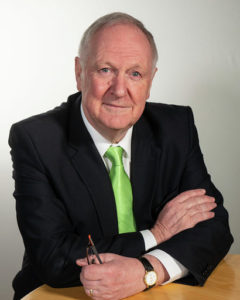Quick search
CTRL+K
Quick search
CTRL+K


Since 2010, the Global Law Experts annual awards have been celebrating excellence, innovation and performance across the legal communities from around the world.
posted 2 years ago
This case involves a 55-year-old retired civil servant, who was now singing in a sixties-style tribute band. He presented with a swelling on the left side of his thyroid gland. A needle biopsy showed this to be benign, but he was counselled by the surgeon to have a resection of the left side of his thyroid gland, as, “just because we have not found cancer, there may still be cancer in the tissues”. He was warned of potential consequences, such as bleeding, infection and damage to the parathyroid glands leading to low calcium levels.
He signed a consent form, and the surgery was carried out. Post-operatively, they noted he was hoarse and felt this may be due to the intubation of his throat required for anaesthesia. When he was reviewed one month later, he was still hoarse. A laryngoscopy was carried out, which showed paralysis of the left vocal cord, which only partially recovered over the next six months. The tone of his voice was altered and he could no longer sing with the band.
When legal action was taken, the plaintiff was informed that the partial paralysis of the vocal cords on the left was a complication of the procedure and not necessarily due to a substandard surgical care – particularly since it had partially recovered, indicating that the nerve involved had not been severed. The histopathological report on the gland showed no evidence of cancer.
The plaintiff successfully argued that had he been informed of the low level of risk of cancer in the thyroid, he would not have consented to a wide excision, as he would not accept a risk to his singing career.
The duty of care in terms of informed consent is not determined by medical practice, but is a legal question. The basic premise is that an adult person of sound mind is entitled to make their own decisions as to whether to undergo a procedure, and they must be given all reasonable information by the doctor, directly tailored to the context of the specific patient. This includes making the patient aware of the complications of any recommended treatment and also any reasonable alternatives or variations in such management. The test is whether a reasonable person in the patient’s position would be likely to attach significance to a specific risk. In this case, the patient is clear they would have attached considerable significance to the fact that there was no proven cancer and the vocal cords could be damaged, ending his singing career.
For an action in negligence to succeed, it would have to be clear that some consequential damage arose, and it is for the court to decide on the basis of the evidence presented by the plaintiff whether or not they would have undergone the surgery anyway – whether or not they had been informed. In this case, the plaintiff is quite clear he would not have submitted himself to surgery had he known that his career could have been damaged. However, in other cases the court may determine that even if the plaintiff had known the potential outcome, they would have undergone the procedure anyway; for instance, in cases of proven malignancy, and therefore the decision to proceed would not have been altered.
MDU figures for 2021 show that fewer than one in six actions in medical negligence actually succeed, with the vast majority failing on the grounds of causation. It must be remembered that subsequence is not the same as consequence.
Initial screening is, therefore, essential to manage client expectations at an early stage. This avoids unnecessary effort and costs for all concerned. Too many cases are taken to Court with no chance of success. This is stressful for both the client and their legal adviser, and indeed for the medical personnel involved.
For fast and effective screening of all potential medical negligence cases, contact Peyton Medico Legal Services now on +44 (0)28 87724177 or email [email protected]
Author


There are no results matching your search.
Resetposted 10 hours ago
posted 13 hours ago
posted 13 hours ago
posted 14 hours ago
posted 14 hours ago
posted 14 hours ago
posted 14 hours ago
posted 2 days ago
posted 3 days ago
There are no results matching your search.
ResetFind the right Legal Expert for your business
Sign up for the latest legal briefings and news within Global Law Experts’ community, as well as a whole host of features, editorial and conference updates direct to your email inbox.
Naturally you can unsubscribe at any time.
Global Law Experts is dedicated to providing exceptional legal services to clients around the world. With a vast network of highly skilled and experienced lawyers, we are committed to delivering innovative and tailored solutions to meet the diverse needs of our clients in various jurisdictions.